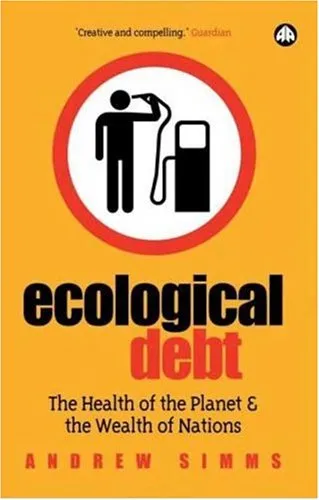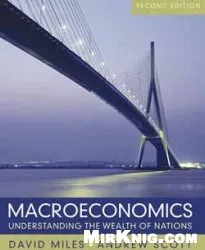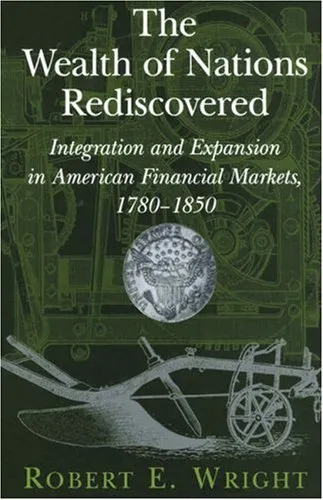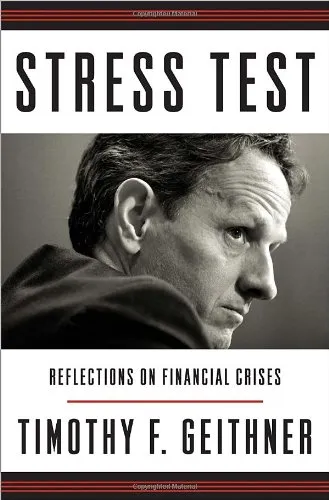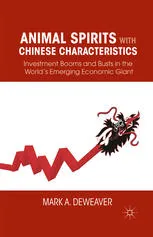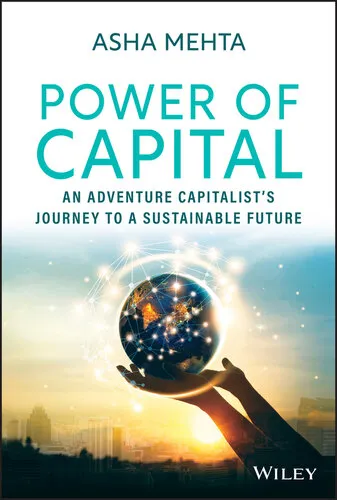Ecological Debt: The Health of the Planet and the Wealth of Nations
4.8
بر اساس نظر کاربران

شما میتونید سوالاتتون در باره کتاب رو از هوش مصنوعیش بعد از ورود بپرسید
هر دانلود یا پرسش از هوش مصنوعی 2 امتیاز لازم دارد، برای بدست آوردن امتیاز رایگان، به صفحه ی راهنمای امتیازات سر بزنید و یک سری کار ارزشمند انجام بدینکتاب های مرتبط:
خلاصه جامع از کتاب
کتاب «Ecological Debt: The Health of the Planet and the Wealth of Nations» به قلم اندرو سیمز، به بررسی رابطه میان سلامتی محیط زیست و ثروت اقتصادی ملتها میپردازد. این اثر پژوهشی به مفهوم بدهی اکولوژیکی و تأثیرات منفی آن بر پایداری محیط زیست میپردازد.
اندرو سیمز در این کتاب با ترکیبی از دادهها، پژوهشها و نمونههای واقعی، نشان میدهد که چگونه کشورهای ثروتمند به طور ناعادلانه از منابع طبیعی کشورهای فقیر استفاده میکنند. او تاثیرات این بهرهبرداری ناعادلانه را بر سلامت محیط زیست، اقتصاد جهانی و رفاه اجتماعی بررسی میکند.
نکات کلیدی
- تعریف مفهوم بدهی اکولوژیکی و چگونگی محاسبه آن.
- بررسی تاثیرات سوء استفاده از منابع طبیعی بر محیط زیست.
- راههای کاهش بدهی اکولوژیکی و حفظ تعادل میان حقوق اقتصادی و محیطی.
- نقش ملتها و دولتها در مقابله با استثمار منابع طبیعی.
نقلقولهای معروف از کتاب
"زیادهخواهی اقتصادی زمانی دلپذیر است که روی ترازوی طبیعت سنجیده شود."
"ما باید به طبیعت بدهکار نباشیم، بلکه خود را بر پایه بهبود و حفاظت از آن بنا کنیم."
چرا این کتاب مهم است؟
اهمیت این کتاب در ایجاد آگاهی درباره چالشهای اساسی محیط زیست و پیوند آن با اقتصاد جهانی نهفته است. با گسترش بحرانهای محیطی مانند تغییرات اقلیمی، خشکسالی و آلودگی، فهم چگونگی تأثیرات اقتصادی بر محیط زیست برای سیاستگذاران، پژوهشگران و حتی افراد عادی از اهمیت زیادی برخوردار است.
اندرو سیمز با نگاهی دقیق و منتقدانه، خواننده را به تفکر و تأمل درباره مسئولیتهای فردی و جمعی در مواجهه با بحرانهای محیط زیست فرا میخواند. این کتاب ابزارهای مهمی برای برنامهریزی پایدار و سیاستگذاریهای اقتصادی معرفی میکند که به سلامت اقتصاد و محیط زیست کمک میکند.
Welcome to the in-depth introduction of "Ecological Debt: The Health of the Planet and the Wealth of Nations," where we unravel the intricate relationship between economics and ecology. This significant work explores the concept of ecological debt—the imbalance between humanity's consumption and the Earth's capacity to replenish resources. The book serves as an urgent call to recognize and address the environmental costs incurred by affluent nations while emphasizing the need for a sustainable global economy.
Detailed Summary of the Book
"Ecological Debt: The Health of the Planet and the Wealth of Nations" unravels the complex layers of economic development, detailing how the industrialized world has incurred a massive debt to the Earth. Andrew Simms highlights how developed countries consume resources at a rate that far exceeds the planet's ability to regenerate them, creating an ecological deficit. Through meticulously researched examples and case studies, the book traces the historical origins and modern-day ramifications of this imbalance.
Simms introduces the compelling argument that while financial debts are fiercely tracked, ecological debts remain largely invisible and ignored. With chapters dedicated to topics like carbon emissions, biodiversity loss, and climate change, the book presents an all-encompassing view of the planet’s health. It explores how the pursuit of economic wealth has historically led to depleted resources and environmental degradation, disproportionately affecting developing nations.
The book doesn't just lay bare the problem; it also proposes a framework for change. It suggests rethinking economic growth models, adopting sustainable practices, and forging international agreements aimed at reducing ecological debt. Simms emphasizes that solving this crisis requires both systemic change and individual responsibility, urging readers to reconsider their consumption patterns.
Key Takeaways
- Ecological debt is the unsustainable use of the Earth's resources exceeding its capacity to regenerate.
- Industrialized nations are the primary contributors to ecological debt, while poorer nations bare its brunt.
- The current economic system prioritizes short-term gains over long-term sustainability and environmental health.
- There's an urgent need to shift towards a more sustainable model that values ecological well-being.
- International cooperation and policy reforms are essential to tackle ecological debt and promote global equity.
Famous Quotes from the Book
"The true wealth of nations, and of the planet, lies in its ecological integrity and sustainability."
"We are borrowing from the environment with no intention or plan of paying it back."
"Real progress must align with the planet's natural boundaries."
Why This Book Matters
"Ecological Debt" is a pivotal book for anyone concerned about climate change, sustainability, and the global economy's future. It challenges readers to think critically about their role in ecological degradation and highlights the urgency of transitioning to sustainable practices. As the global community grapples with climate change, this book offers invaluable insights into how we can build a future that respects the Earth's ecological limits.
By blending economic principles with environmental consciousness, Simms provides a compelling narrative that bridges the gap between ecological and economic disciplines. His work not only educates but also empowers individuals and policymakers to take meaningful action towards reducing ecological debt. This book is an essential read for those who wish to understand and influence the trajectory of our planet and its resources.
دانلود رایگان مستقیم
شما میتونید سوالاتتون در باره کتاب رو از هوش مصنوعیش بعد از ورود بپرسید
دسترسی به کتابها از طریق پلتفرمهای قانونی و کتابخانههای عمومی نه تنها از حقوق نویسندگان و ناشران حمایت میکند، بلکه به پایداری فرهنگ کتابخوانی نیز کمک میرساند. پیش از دانلود، لحظهای به بررسی این گزینهها فکر کنید.
این کتاب رو در پلتفرم های دیگه ببینید
WorldCat به شما کمک میکنه تا کتاب ها رو در کتابخانه های سراسر دنیا پیدا کنید
امتیازها، نظرات تخصصی و صحبت ها درباره کتاب را در Goodreads ببینید
کتابهای کمیاب یا دست دوم را در AbeBooks پیدا کنید و بخرید
1516
بازدید4.8
امتیاز0
نظر98%
رضایتنظرات:
4.8
بر اساس 0 نظر کاربران
Questions & Answers
Ask questions about this book or help others by answering
No questions yet. Be the first to ask!
